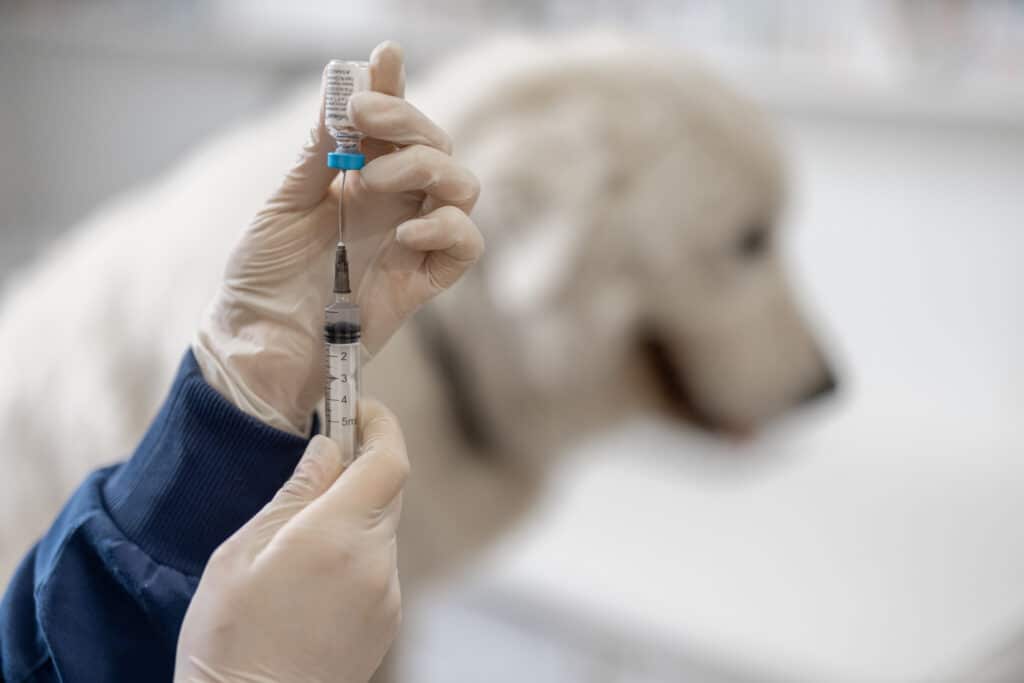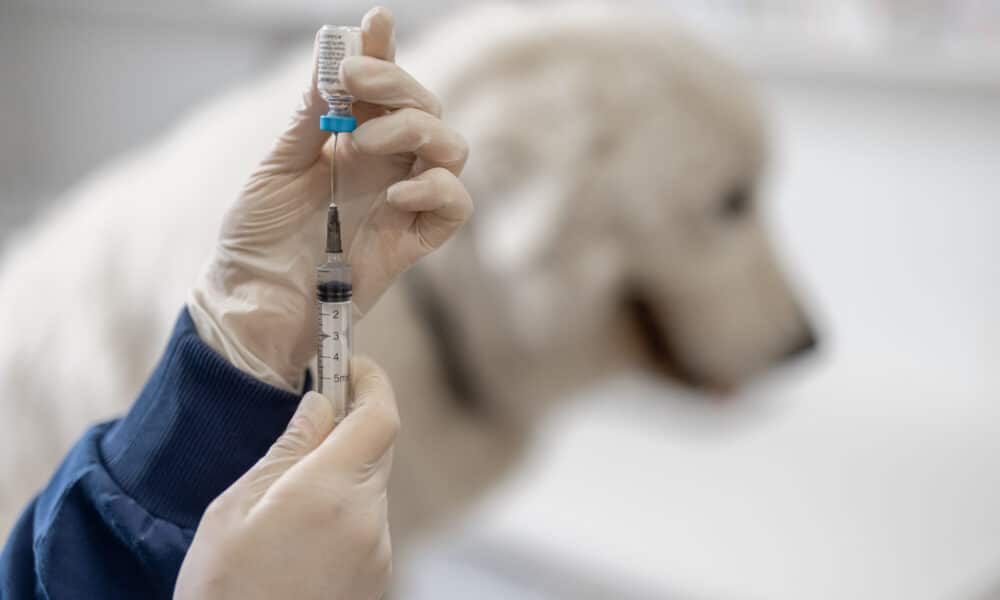A brand new research printed within the medical journal Vaccine discovered that greater than 50% of canine homeowners within the US have gotten extra skeptical of canine vaccines.
The research, printed on Saturday, August 26, performed a survey on 2,200 individuals relating to their opinion on routine canine vaccines, particularly rabies vaccines.
Surprisingly, 53% of the individuals expertise one thing that the researchers referred to as Canine Vaccine Hesitancy (CVH), which they described as “canine homeowners’ skepticism in regards to the security and efficacy of administering routine vaccinations to their canine.”
These individuals consider that canine vaccines are both unsafe, ineffective, and/or pointless.
Moreover, 37% have been involved that canine vaccines might trigger autism of their canine, a concept that isn’t backed up by any scientific proof.
Speaking to the USA In the present day, the researchers, brother-sister duo Matt and Gabrielle Motta and Dominik Stecula mentioned they have been fairly shocked themselves.
Matt Motta, a political scientist and researcher at Boston College’s Faculty of Public Well being, advised USA In the present day, “The sheer quantity of people that maintain these opinions was fairly putting…that, to me, is fairly alarming.”
Motta additionally mentioned, “I consider the COVID-19 vaccine has essentially modified the best way that Individuals view vaccination normally.”
“I believe alarmingly that might be spilling over to form how individuals really feel about perspective towards vaccinating their pets and admittedly, who is aware of what else? , it might go even additional.”

In the meantime, Gabriella Motta, a board-certified veterinarian, believes that the hesitancy to vaccinate comes from pet homeowners’ love for his or her canine and the dearth of expertise with the diseases these vaccines shield in opposition to.
Speaking to USA In the present day, Motta mentioned, “I believe when homeowners are questioning the vaccine, they’re coming from a spot the place they honestly care about their canine and so they don’t need their canine to be a guinea pig or, you recognize, get one thing that they don’t want, that might doubtlessly trigger a facet impact.”
Nonetheless, she identified the significance of retaining the vast majority of a inhabitants vaccinated, “We don’t expertise what different international locations do the place rabies is a reliable concern that folks have,” she continued.
The researchers of the research referred to as CVH ‘problematic’ and defined, “CVH is problematic not solely as a result of it could encourage vaccine refusal – which can in flip facilitate infectious illness unfold in each canine and human populations – however as a result of it could contribute to veterinary care supplier psychological/bodily well being dangers.”
The research confirmed {that a} sustained vaccination of at the very least 70% of canine can almost eradicate human rabies instances, particularly in high-risk areas.
Nonetheless, the researchers warned that with the prevalence of CVH, the vaccination charges might ultimately drop under 70%.
“Troublingly, we discover that CVH is related to rabies non-vaccination, in addition to opposition to evidence-based vaccine insurance policies,” they continued.
In keeping with the World Well being Group, canine are liable for 99% of human rabies deaths globally, making them the primary carriers and transmitters of this viral illness.


